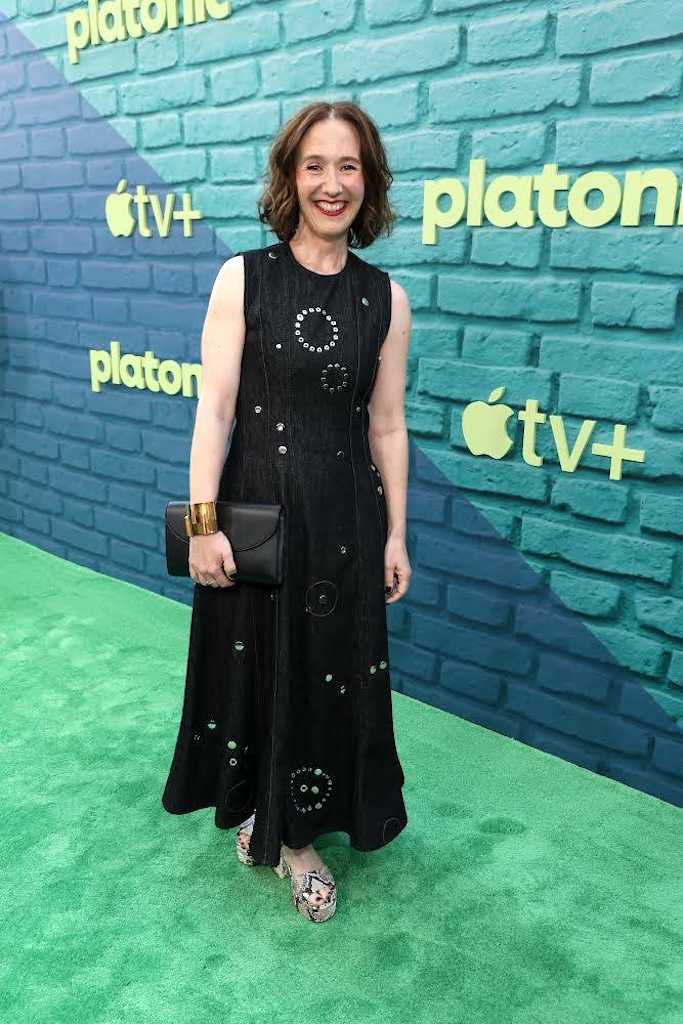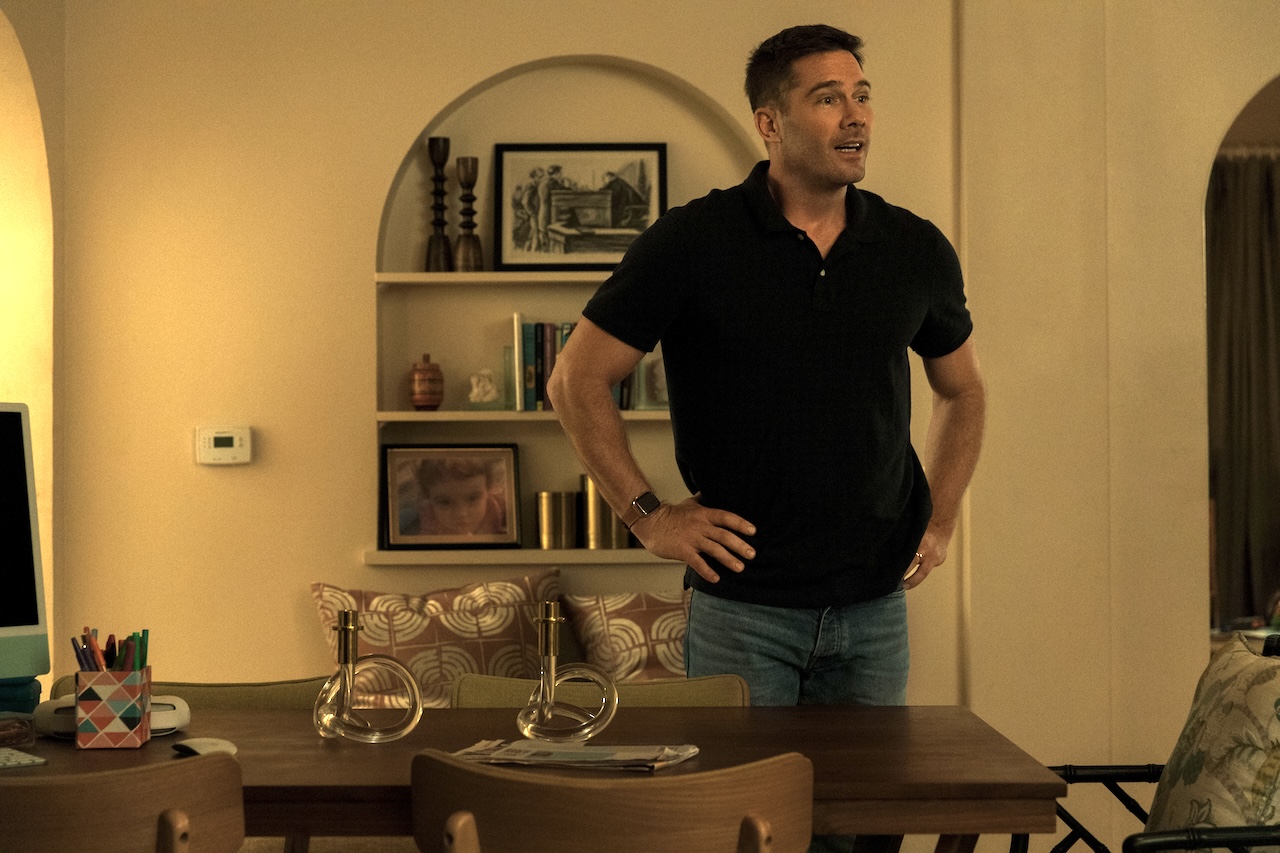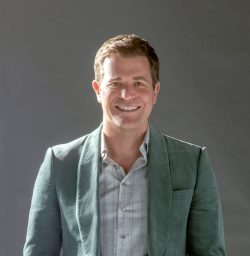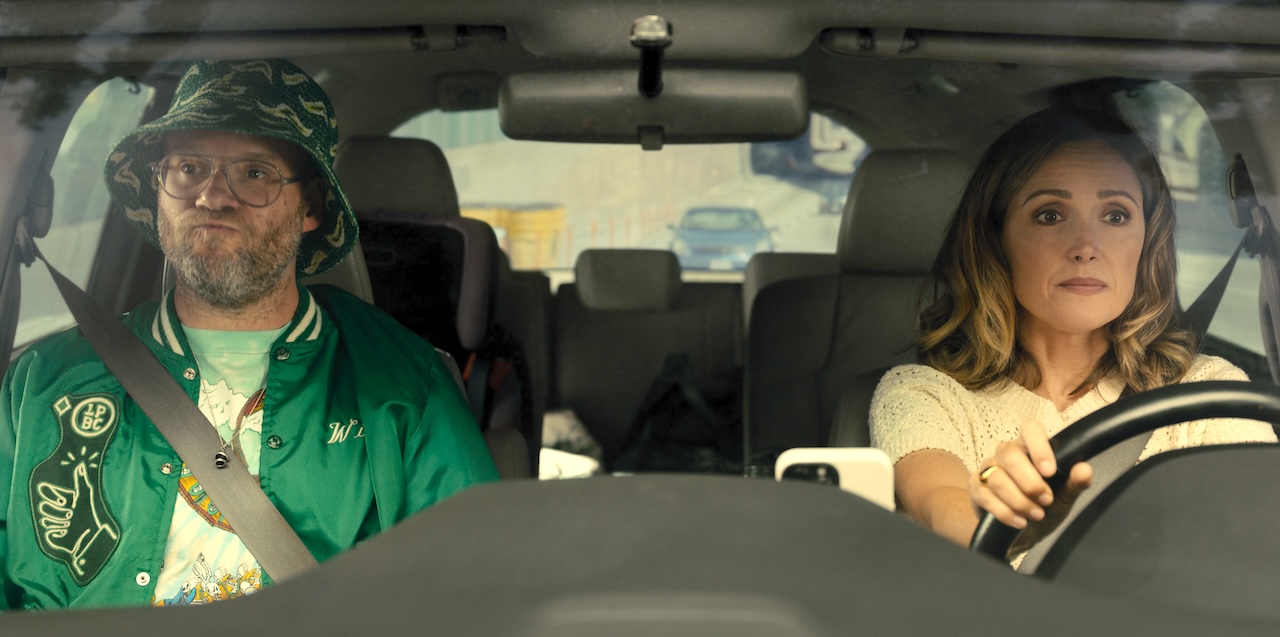“The idea really came from my own life because I am a person who had a lot of very close male friends in college and remained close to a lot of them,” says Francesca Delbanco. “But a moment happened when people started getting married and coupling up and having children, when I noticed I was becoming closer friends with my friends’ wives and Nick [Stoller] was becoming close to my friends and the world was calcifying into men being together and women being together.”
Francesca noticed this in all of her worlds, such as the gym, the children’s school, or even dinner parties. “Men would be talking to men and women would be talking to women. I started wondering why it had to be that way. When I looked around me, it wasn’t just me. It was happening everywhere.”
This all led to the idea for the series Platonic. Rose Byrne stars as Sylvia, a stay-at-home mom of three who is married to Charlie (Luke Macfarlane), a lawyer. She reconnects with her old friend Will, played by Seth Rogen, who is recently divorced and works at a brewery that he also partially owns. They haven’t been close since college.

Francesca Delbanco
“Why is it hard to maintain platonic friendships of the opposite gender as life goes along?” asks Francesca. “Is that inevitable, or is it something in society or something each person determines for themselves and is there any fighting against it?” Nicholas adds, “And, there’s something special about a male-female platonic friendship, so what do you lose when you don’t have that?”
The When Harry Met Sally Dilemma
For the most part, the creators looked to real life for storylines, but they did feel the need to examine historic films and television on the subject, such as When Harry Met Sally. “We knew we had to talk about that, and we do in the pilot, but when you watch that movie, it’s fully not a friendship, from the beginning. They’re fully in love. It’s an amazing sleight of hand, and one of my favorite movies, but they’re fully flirting and in love the whole movie.”
The characters discussed it in the pilot so they could get it out of the way and focus on a true friendship. “The closest we came and Seth brought it up, was Jerry and Elaine from Seinfeld. They had dated and had a history, but that’s the closest dynamic we had. Tonally, it’s quite different.” For writers hoping to write comedy scripts in a similar tone, the screenwriters recommend reading scripts such as Sideways, Election, As Good As It Gets, Broadcast News, Spanglish and the TV series Catastrophe.
Because this dynamic doesn’t really exist in the cultural zeitgeist, but does exist for everyone in the real world, the writers knew they were on to something. “Usually it’s a story about two people who love each other. It becomes romantic at some point in the story arc. Is it possible to love somebody and have it not become romantic? That’s what we were exploring.”
Despite the premise and title, because of other films and shows, most viewers assumed the two might get together simply because that’s what they’ve seen in the past. “Whether or not people liked it, they didn’t get together and they won’t get together.” Early on, there was some focus group info that said audiences were relieved that they didn’t get together.
Not unlike Dan Levy’s Good Grief, which is also more about friendship than romance, it was “creatively difficult” to write. “Usually, the question, or possibility, of romance or sex is the engine that drives a lot of comedy. So when you don’t have that, you look around and have to ask, ‘What’s going to make the next episode?’ or ‘How are people going to care about this?’” This made cliffhangers and general stakes more difficult to figure out.
Writing for Seth Rogen and Rose Byrne
This same dilemma would have made pitching more difficult, but luckily Seth Rogen and Rose Byrne were already attached, so that dynamic helped with a greenlight. “Dan Levy is also talking about a movie premise and this would be a hard one, but all comedies sort of have this premise. Now, everything on TV is high concept, but shows like Seinfeld, which is about four friends hanging out. This is just exploring two people in their friendship which is what makes comedy TV great.”
Seth and Rose had already played a married couple in Neighbors and Neighbors 2. For this project, they wanted to explore the idea of a platonic relationship. “It sounds basic, but it was really important for Seth that it never even veers [into the question] of whether or not these two would sleep together. In the original concept, there were some episode ideas that put the two in a hotel room together, and even though nothing would happen, we didn’t want to even invite that idea into the mind of the audience.”

Charlie (Luke Mcfarlane) Photo courtesy of Apple TV+
Without so many of these familiar narrative structures, it’s also more difficult to decide how the characters can grow or not grow, and where to take the story.
“Even amongst the hijinks and stuff, the show is very realistic. The growth of the character is really small – maybe four percent. But they do grow. People change a little bit, but they’re not huge changes. These two people have this break and they seek each other out because they’re both going through something emotionally difficult and they help each other out.”
The creators hope this doesn’t appear on the screen, but it is a complex dynamic to write. “Sylvia needs her own whole emotional story and Will needs his own whole emotional story and they don’t really have much to do with each other. But every episode needs to have friction in their friendship about their independent story and how they collide. It is a weird complicated dance that we try to keep invisible.”
A Tough Hang
Platonic also wants to highlight how easy it is to have lots of friends at an early age and how difficult it can be later in life, when everyone has so many family responsibilities and obligations. “We do have that problem often in the writers’ room where the two of them are out all night again, but we can’t do it that way. What married woman with three little kids is out all night? Maybe once in a blue moon.”

Nick Stoller
“Getting them together is a logistical challenge in Season One and we’re working on it in Season One.” Figuring out how to put these characters together somewhat drives the plot. “What are these characters’ flaws? What kind of growth do we want them to experience over a season? What moves do we believe they could make over the course of a season? We know it’s hard for grown people to change.”
In the writers’ room, the first idea might just be, “What if they did this together?” That plot is tossed out or revised to think back about, “What are they going through individually that brings them back together? It always comes back to that. And what they’re going through is coming from our lives and our writer’s lives — serious problems and dilemmas — and that’s where the writing comes from.”
With all of these complications, the initial pitch was for an anthology series, but thanks to critic, audience, and cast feedback, they realized they had a “rare gem” on their hands. “I approached [Seth and Rose], asked if they wanted to do it again, and it became a no-brainer for us. We adjusted from an anthology where we would do other characters, but I actually prefer this [path].” Other ideas would have been about friends in college, work wives and work husbands, and other platonic relationships based on the same theme.
Read our first conversation with Nicholas Stoller for ‘Bros’ here. Listen to the full audio version of this interview here.

